A couple years ago, I created my first “go bag”, as I like to call it. It was for paddle boarding and it was full of everything I would need for a day of paddleboarding (minus food and drink). The idea was to always have this bag packed and ready so that whenever we wanted to go, we had the essentials already packed and we could focus on getting the food and drinks ready. This has worked so well for us that we've started taking this approach with all of our activities! It really helps us get out of the house faster to go to the pool, go fishing, go boating, go paddleboarding, etc. Keep reading below for the essentials we recommend packing in your surf fishing tackle bag. After we tackle the must-haves, we'll go into some more “nice to have” items.
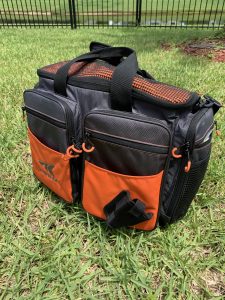
Must-Have Tackle Bag Items
- Saltwater Fishing License
I cannot emphasize this one enough. You will likely have your tackle bag with you when you're fishing, so I recommend storing your fishing license directly in the bag. If you go deep sea fishing every now and then, it might be better for you to store it in your wallet. According to Florida Rule 68B-2.003, License Required for Harvest or Possession of a Marine Organism, “a recreational harvester may not harvest, attempt to harvest, or possess in or on Florida Waters a marine organism unless the recreational harvester is in possession of a valid recreational saltwater fishing license.” It is illegal to fish without a license, so head over to Go Outdoors Florida to order your license.
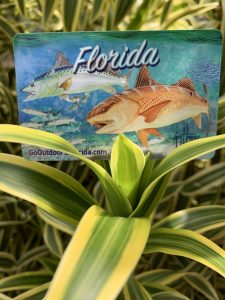
2. Needle Nose Pliers
Needle nose pliers are a necessity for removing hooks from fish. They also come in handy if you get a hook stuck in your own finger! Most pliers nowadays also have built in line cutters which can help minimize the number of items you need to carry in your tackle bag. When choosing pliers for surf fishing, make sure you get a pair that is corrosion resistant. You'll also be thankful in the long run if you make it a point to always choose lightweight options as the weight of surf fishing gear will add up and get heavy QUICK! We recommend one of two products:
Cuda bent nose pliers are meant for saltwater, and the curved tip can help make it hook removal easier. The built in cutters will work on wires and mono, but may not work for cutting through braid. These pliers are an affordable option for most.
If you're able to splurge, we would recommend looking into Accurate's Piranha pliers. These are super lightweight due to the aircraft-grade aluminum material and corrosion resistant. They actually use the technology used on aircraft components to keep the product lightweight and then put the product through an anodization process for corrosion resistance. And best of all, they're made in the USA! For the best price, purchase these from Tackle Direct.
3. Bait-Artificial and Live
Just about every surf fishermen has used Fishbites for artificial bait. Its probably the first bait you ever used from the beach! They come in a variety of flavors like sand fleas and shrimp to help you target specific fish species. Our only concern with fish bites is bringing the plastic packaging to the beach. Sometimes the wind will pick up and take your empty plastic bags out into the ocean, but as fishermen we need to be conscious of preserving nature and not polluting it. This is an easy fix, though. We recommend buying a couple of reusable silicone bags and moving your fish bites from the plastic bag to the reusable silicone bag prior to going out for a day of fishing.
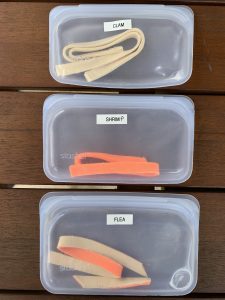
For live bait, you can either buy it at a local tackle shop, or bring your sand flea rake and use sand fleas. Shoot, we've even used a golf ball water retriever once when we were visiting my parents and forgot to pack the rake!
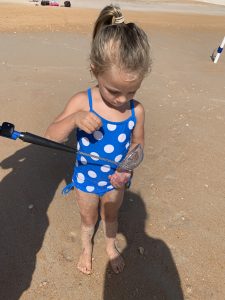
4. Fish Handling Gloves
Gloves, like this one by Lindy, are a necessity to protect your hands. Sometimes you'll catch a catfish and you must have gloves to safely handle a catfish. Catfish fins are sharp and actually have venom that will cause you to swell if it cuts through your skin! It's also very common for fishermen to come close to hooking their own fingers or hands. Wearing gloves can help protect you from those kinds of accidental hooks as well.
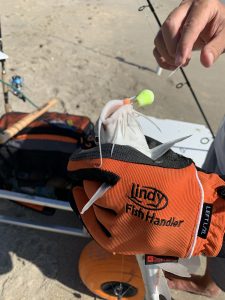
Fish handling gloves also come in handy if you would prefer not to touch slimy fish or bait. You can even find nice form-fitting ones, like these ones by Gill, that will let you handle fishing line pretty well and let you fillet your catch without feeling like you're wearing bulky gloves. They even make an option like this one that is attached to a caribener with a magnet release so you can hook it to your wading belt and quickly put the gloves on when you catch a fish, without needing to wear the gloves constantly.
5. Fish Ruler
When fishing for keeps, you'll need to have a ruler to check the size of your catch for regulated species. There are lots of different options. My husband has one that folds up and has the different slot sizes with pictures of the fish to help identify the species. Those are great and are best found at a local tackle shop. I've taken look online and I can't seem to find any with the current years' laws on them. You can also get a ruler with adhesive on the back. For surf fishing, it might be best to stick it to your beach cart or your cooler (if its big enough). You can also bring a traditional ruler or fabric tape measure and pair it with some reference cards like this. Always make sure your references are for the current year!
6. Sunscreen
Don't forget sunscreen! Or if you do, make sure you're wearing a UPF protective shirt, hat, and sunshade. Really I think this one goes without saying, but since you're on the beach where the sun is typically the most powerful, you'll be hurting if you forget it! We are trying to be a little more conscious of our environment and have read a few articles lately about how some sunscreens are actually hurting marine life by killing the coral reefs. We recommend opting for a reef-safe sunscreen whenever you're at the beach and the Sun Bum sunscreen is so easy to find in stores that its a no-brainer!
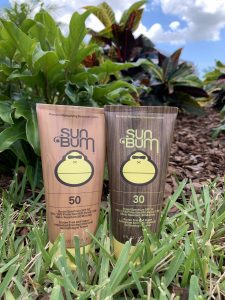
7. Polarized Sunglasses
Sunglasses are along the same lines as sunscreen.. we're trying to bring protection from the sun, but this one protects our eyes instead of our skin. Polarized sunglasses are an absolute must when surf fishing because of the targeted protection against harmful sun rays reflecting off the water's surface. There's a really nice company called RCI Optics that's local to our area. My husband wears these ones all the time and loves them. I haven't pulled the trigger yet on a pair for myself, but I will soon!
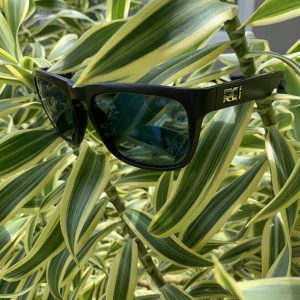
8. Extra Line, sinkers, swivels, bobbers, hooks
These are some lightweight fishing tackle items that you're better off carrying along. If your rig gets stuck in a rock and you have to break it off, you'll want to be able to set up another rig and get going again. Otherwise you'll definitely be bummed that you are forced to cut your trip short. Most of these items are small enough that you'll just keep them in your fishing tackle utility boxes in their separate sections, but make sure you don't forget the extra line! Packing these spare tackle items can grow to be too heavy and bulky to be classified as “essentials” if you aren't cautious. We recommend keeping just a couple favorites of each type on hand so you can minimize how much you have to carry out there. Specifically, here's the spare tackle we carry
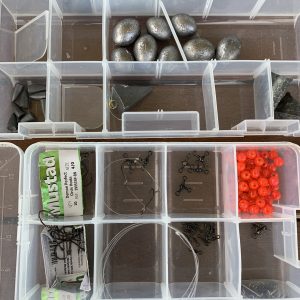
- 1 oz and 2 oz pyramid sinkers
- Sputnik sinkers
- Swivels (saltwater!)
- 10# and 20# mono line
- 2/0 Circle hooks
9. First Aid Kit
When you're dealing with hooks and scissors, and line that'll cut through flesh, it's probably a good idea to carry a first aid kit. I'd grab a mini one with some cleansing wipes, antibiotic ointment, and bandaids. It never hurts to be prepared! We haven't had to use our yet (thankfully), but I suspect that won't last forever since we typically fish with our two young daughters, one of whom is always finding a way to get hurt.
10. Line Cutter
The last item on our essentials list is a line cutter. This is critical in case your line gets stuck, or a hook gets stuck or tangled and you have to cut the line. Having this on you could save you a lot of frustration. You can use several things for this, like a fillet knife, pocket knife, or even nail clippers. If you're using braided line, you'll need some stronger scissors targeted for cutting braid.
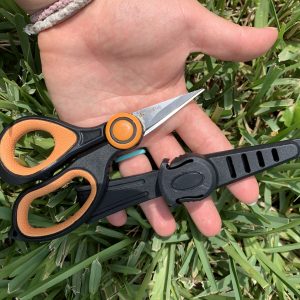
“Nice to Have” Tackle Bag Items
11. Fish Stringer
If you're interested in keeping your fish alive after catching them, a stringer can help! It's a lightweight addition to the tackle bag and keeps the fish alive without having to carry a makeshift live well out there. Be careful and get an extra long one and one with a quick release just in case a shark swoops in and eats your catch. There are multiple types of stringers. Ones made out of nylon, rubber, and even metal. They each have their advantages and disadvantages that you can read about in my post How to Store Your Keeper Fish.
12. Bug Spray
I don't know how you feel about bugs, but they can sure ruin my day if I'm getting bit too much. After living in Florida for so many years now, we've learned to always carry bug spray in our adventure go bags. I tend to choose the pump bottle style since it gets pretty hot on the Florida beaches and the aerosol ones always have the warning “store in a cool, dry place”. We don't shy away from Deet either. I've read about how Deet-based bug sprays can damage aquatic life, so its probably a better choice to opt for an organic, Deet-free version in a pump bottle, like this one, especially if you're doing any catch-and-release fishing.
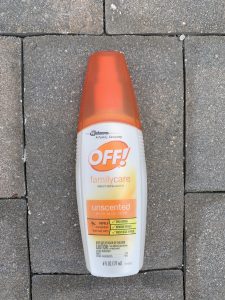
13. Snacks
Let's face it, we all get the munchies when we're at the beach waiting to see if a fish will bite. We usually bring lunch in the cooler, but the pantry snacks can easily be stored in a pocket of the tackle bag. We always bring things like Cheez-its, granola bars, and trail mixes. The hard part to me is packing up the food without bringing a lot trash-producing things to the beach. Its so disheartening to walk along the beach after a storm and see trash everywhere! We recommend repackaging your snacks in something like these stasher bags to help do your part to protect the ocean ecosystem.
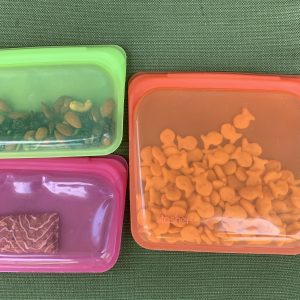
14. Bait Towel
I just found these bait towels on Amazon the other day and bought it immediately. So many times where I wished I had a towel on me to wipe of slime from fish bites to avoid wiping it on my shorts. Something so simple but its really genius how it comes with a caribiner to hook onto you short or wading belt. After seeing this product, who would ever want to wipe slime or blood on their shorts again?! The only thing I'd caution about is making sure you wash this after every outing! The kind of things you'll be wiping off will SMELL!! It comes in a 3 pack, so even if you go fishing on back to back days, you should still be covered while one's in the wash.
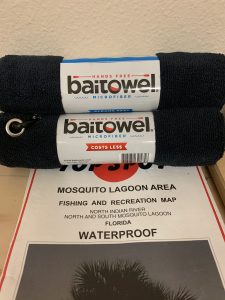
15. Fillet Knife
Although you likely cannot fillet your fish on the beach due to the Landed in Whole Condition Requirement for most regulated species such as Florida Rule 68B-36.003 for Black Drum, you may still want to carry a fillet knife with you to bleed the fish after catching it. Killing and bleeding the fish immediately after catching actually helps prevent the release of hormones that will negatively affect the flavor of the meat. We recommend carrying a fillet knife that comes with a protective sheath so you can store it without worry in your tackle bag.
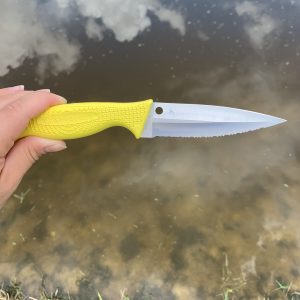
16. Fishing Priest or Ike Jima tool
Along the same lines as number 15, we recommend bringing either a fish bat or an Ike Jima fish spike with you to help kill the fish after catching it. If you've never done it, give it a shot and see if you can taste a difference in the meat! The intent with these two tools is to quickly stop brain activity to prevent an adrenaline reaction which will cause toughness and a bad taste in the meat. We don't think this is critical, which is why we've put it in the “nice to have” section, but if you're interested in trying to improve the taste of your fillets, read our post about it here and bring the right tool with you!
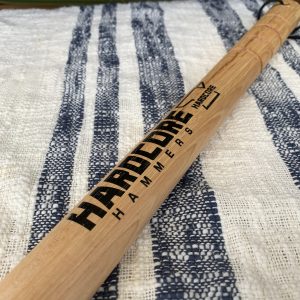
17. Fish Scale
A fish scale serves two purposes. Sometimes you'll want to use it to weigh the fish you caught, especially if you fish in tournaments. It's also a way for new fishermen to learn if their drag is set correctly on their reel. Grab one that has some memory in case you forget what the reading was, or if you have to let it go for some reason. Most of them work by having a grip portion that you use to latch onto the lip of the fish and then hold it up vertically. Pretty simple! To read more about how to use a fish scale to set your drag correctly, click here.
18. Fishing Rules Reference
Florida Fish and Wildlife Conservation puts out a great chart that summarizes the fishing rules, both general rules and species-specific rules. It'll tell you the bag limit, whether or not a landed in whole condition requirement exists, and even closed seasons if applicable. It's hard to remember all of these laws, so we would recommend carrying this booklet with you. Go to a local tackle store and I bet you can find this chart printed and laminated for you already.
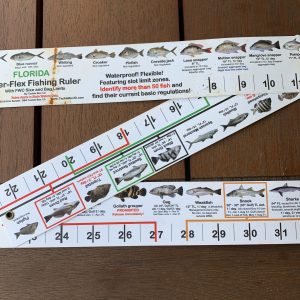
19. Tape
The final item we put in the “nice to have” category is tape! You can use electrical tape or duct tape. Tape is a funny thing because it's something that we never anticipate needing, but we always end up being grateful that we brought it when we did. You never know what you'll need to tape back together, so just carry a small roll along and you won't regret it.
I hope this posts helps you prepare for your next day or surf fishing! Tight lines and high tides, y'all!
As an Amazon Associate I earn from qualifying purchases.


